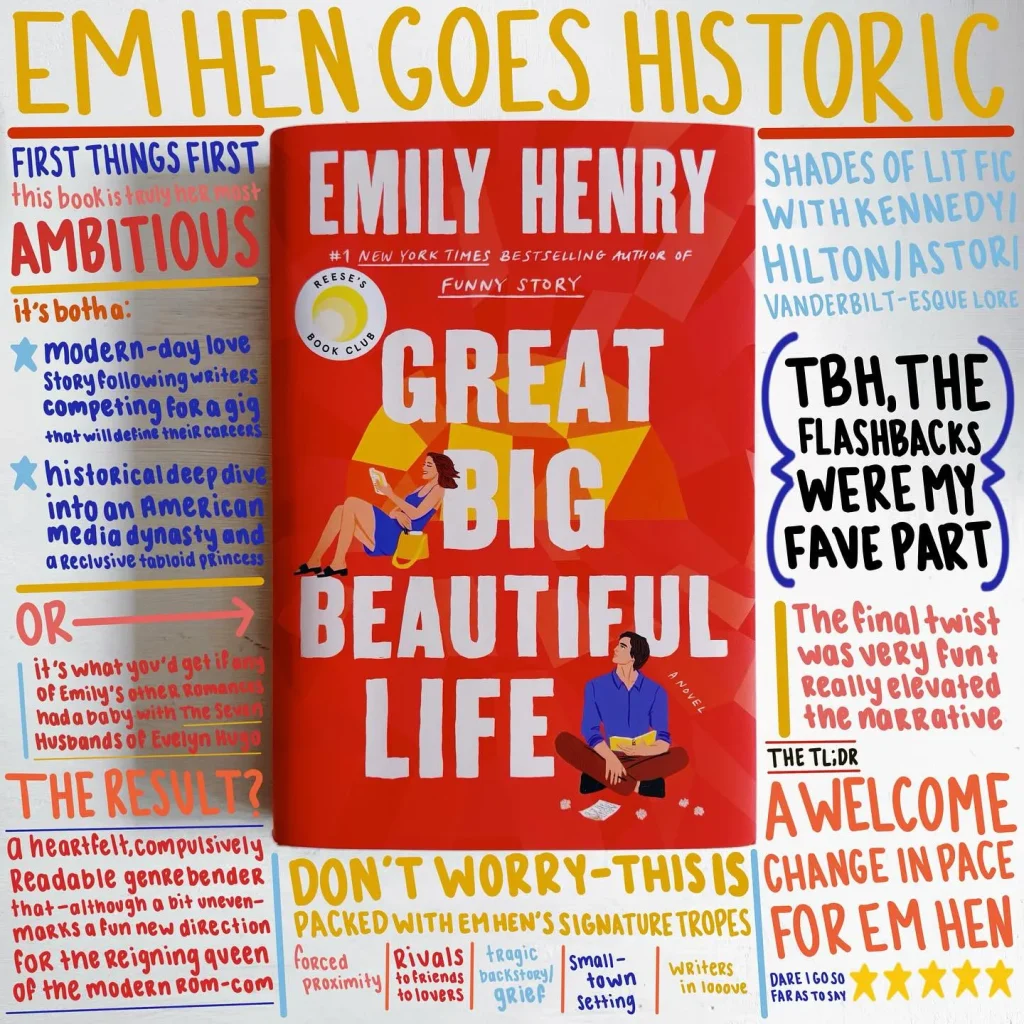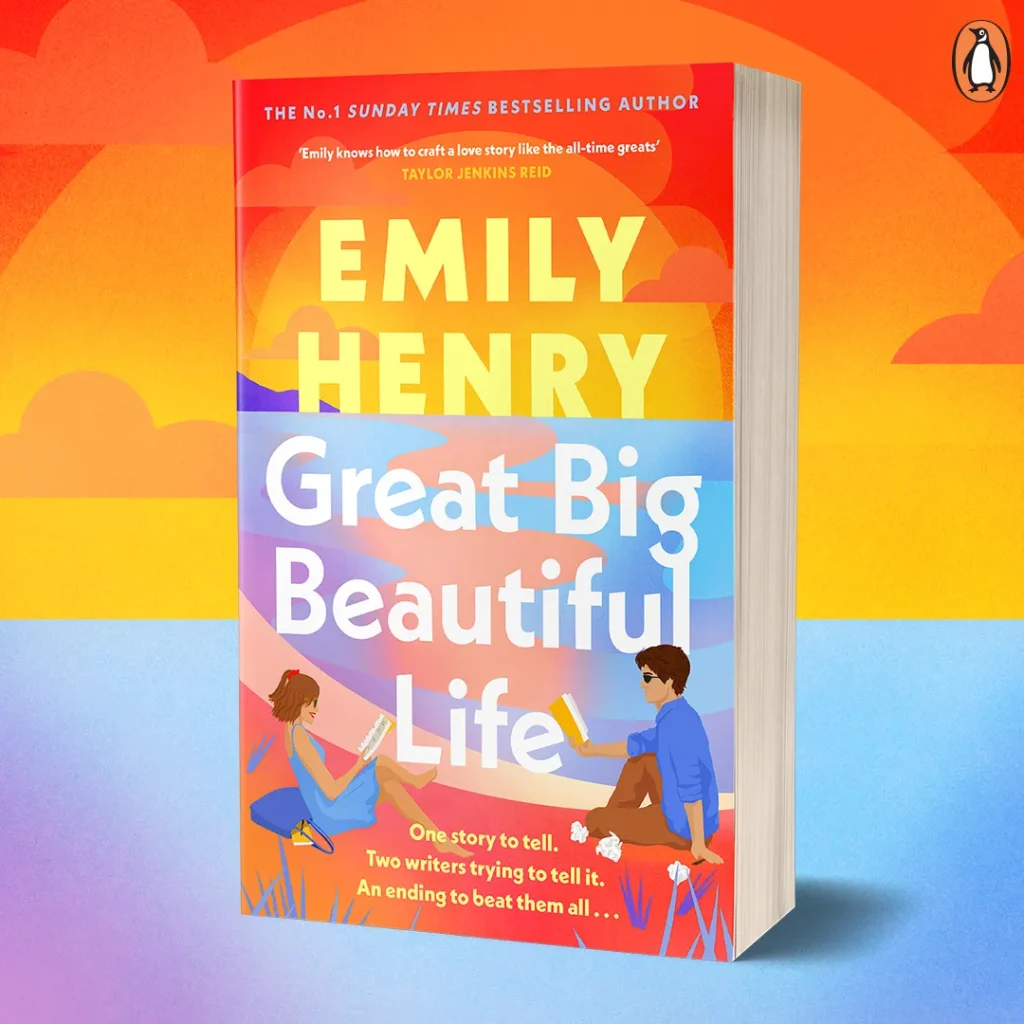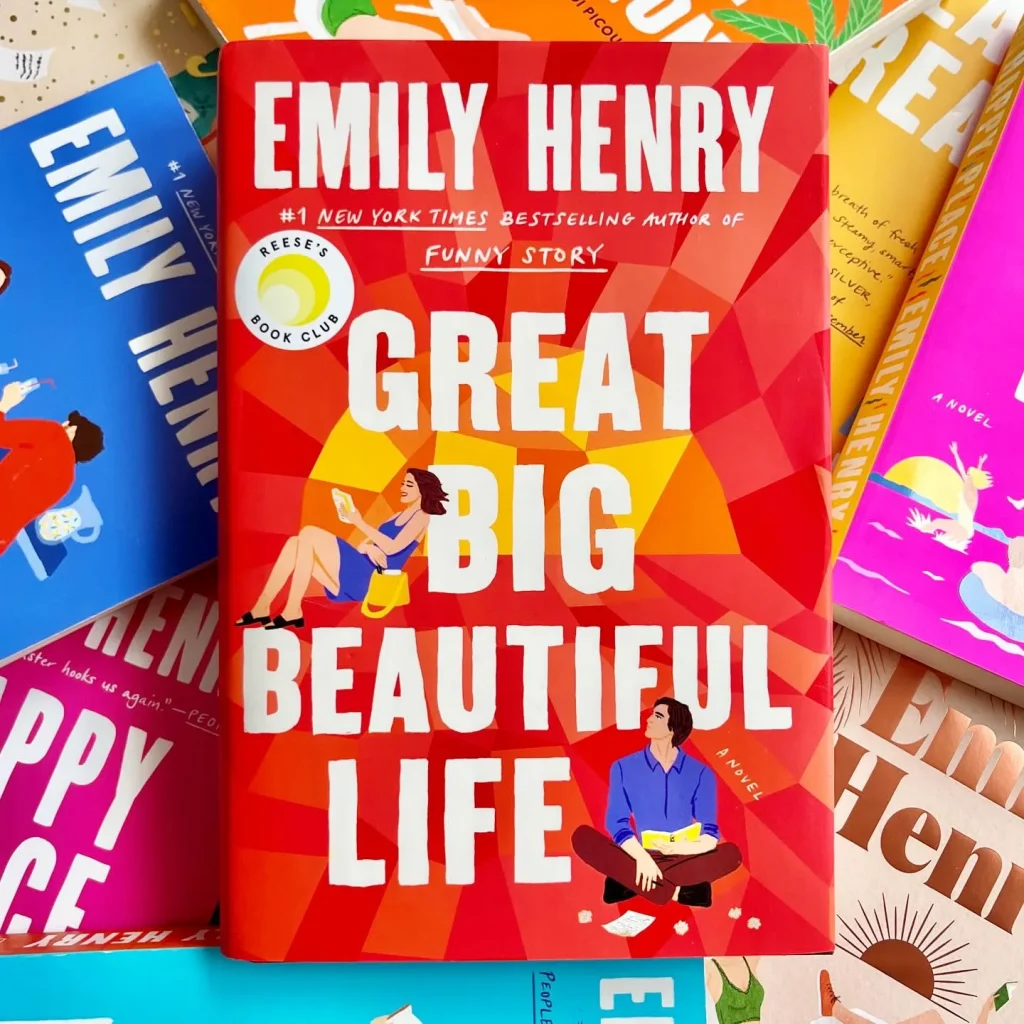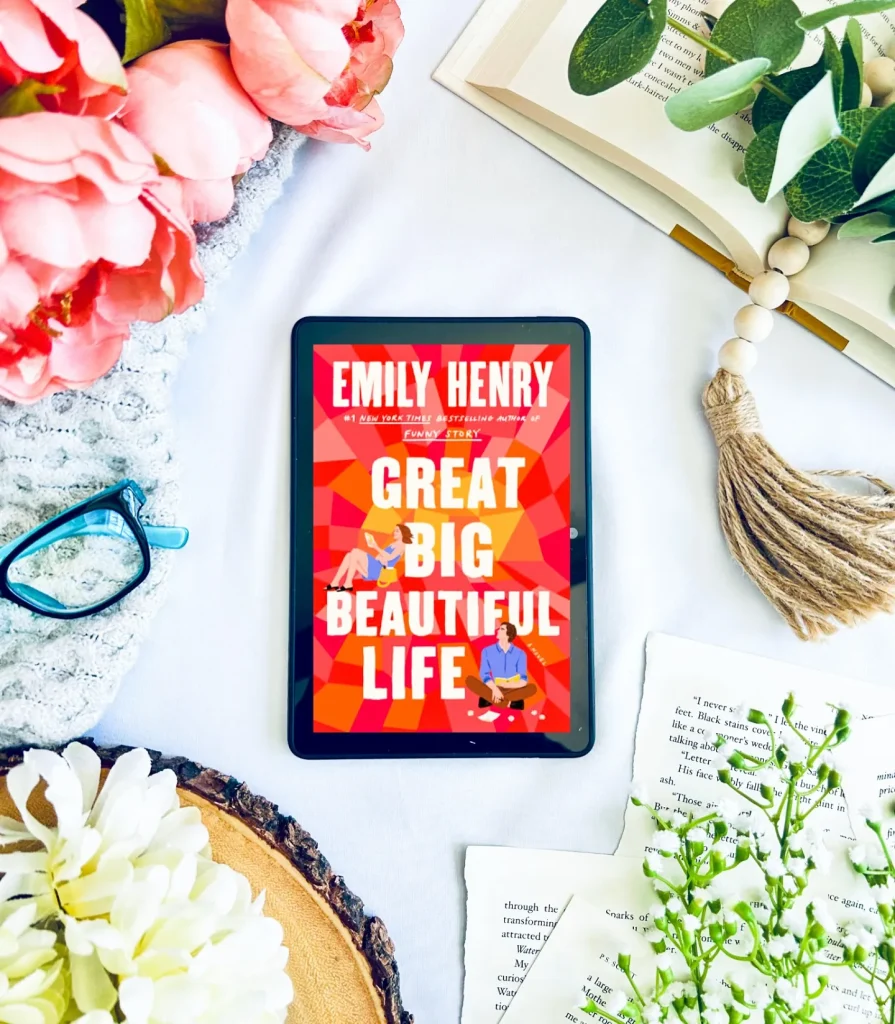In the ever-evolving landscape of contemporary romance, few authors command the loyalty and fervor of Emily Henry. Her novels, often vibrant tapestries of love, wit, and human connection, have cemented her as a luminary in the genre.
When I closed the final pages of Emily Henry’s Great Big Beautiful Life, I felt that rare, bittersweet ache that comes from leaving a world you’ve grown to love. This review Great Big Beautiful Life is my attempt to capture the emotions and insights stirred by a novel that has sparked lively debates among readers.
As someone who’s been swept away by Henry’s stories before, I dove into this book with a mix of excitement and curiosity, eager to see where her words will take me. Written for book lovers and literature enthusiasts who crave stories that feel like a warm conversation with a friend, this reflection explores the heart of Henry’s latest work—its characters, themes, and the quiet magic it weaves.
Join me as I share what made this book linger in my thoughts long after the last chapter.
What is Great Big Beautiful Life About?

Great Big Beautiful Life unfolds on the picturesque Little Crescent Island, where two journalists, Alice Scott and Hayden Anderson, compete to write the biography of Margaret Ives, a reclusive heiress whose life is steeped in scandal and intrigue. Alice, a vivacious journalist with an infectious optimism, embodies the “sunshine” archetype, while Hayden, a Pulitzer Prize-winning biographer with a reserved demeanor, represents the “grumpy” counterpart.
Their rivalry plays out over a month-long trial, during which Margaret selectively shares her past, revealing a life marked by Hollywood glamour and personal tragedy. As Alice and Hayden grapple with professional ambitions and an unexpected romantic connection, they discover inconsistencies in Margaret’s stories, prompting them to question the nature of truth and the weight of legacy.
The novel employs dual narratives, seamlessly alternating between the present-day dynamics on the island and Margaret’s recollections of her life during the Golden Age of Hollywood. This structure allows Henry to explore themes of familial love, personal growth, and the blurred lines between perception and reality.
While the romance between Alice and Hayden provides emotional warmth, the novel’s core lies in its examination of Margaret’s enigmatic history and the complex dynamics of the Ives family. This shift from Henry’s traditionally romance-heavy narratives has sparked mixed reactions, with some readers embracing its depth and others longing for a more prominent romantic focus.
Review Great Big Beautiful Life: Why Emily Henry’s 2025 Story Stole My Heart

Reading Great Big Beautiful Life felt like settling into a cozy armchair by the sea, the kind of book that makes you want to slow down and savor every page. From the start, I was drawn to Alice Scott, whose sunny disposition isn’t just a trope but a carefully crafted reflection of her life’s joys and scars. Henry gives her such depth—her optimism isn’t blind but a choice, and watching her confront her own vulnerabilities was both moving and relatable.
Hayden Anderson, with his guarded heart and quiet strength, took a little longer to win me over, but as his layers peeled back, I found myself rooting for him. Their romance, though it blooms quickly, carries a sincerity that reminded me of the fleeting, intense connections that can change us forever.
What struck me most was how every character felt like someone I could meet. The island’s residents, from bartenders to neighbors, have their own quirks and stories, making Little Crescent feel like a place I could visit. Even Margaret’s long-gone family members, glimpsed through her memories, feel vivid and real. This care extends to the settings—Henry’s descriptions of the island’s salty air and the Ives estate’s faded grandeur made me feel like I was there, breathing it all in.
The way she weaves the two timelines, present and past, is seamless, each story enriching the other. Margaret’s tale, with its mix of Hollywood sparkle and heartbreak, often pulled me in more than the romance, which I know has been a sticking point for some readers. For me, though, it was a highlight, adding a layer of mystery that kept me turning pages.
Henry’s writing is as warm and inviting as ever. Her sentences have a rhythm that feels like a conversation, and her dialogue crackles with humor and heart. I found myself smiling at the banter between Alice and Hayden, and tearing up during quieter moments, like Alice’s scenes with her mother, which hit close to home.
The novel’s focus on family—how it shapes us, holds us, and sometimes hurts us—gave it an emotional weight that stayed with me. It’s not just a love story; it’s about the people we carry with us, the stories we inherit, and the truths we choose to tell.

That said, I can see why some fans felt a little let down. The romance, while sweet, doesn’t take center stage the way it does in books like Beach Read or Book Lovers. It unfolds fast, and at times, I wished for more moments to let their connection breathe. Margaret’s story, as compelling as it is, overshadows the love story, which might disappoint those craving that classic Henry spark.
For me, though, this balance worked. The mystery of Margaret’s shifting narratives—who she was, what she hid—felt like a treasure hunt, and it made the romantic moments, when they came, feel earned and precious.
What I loved most was how the book made me feel everything. I laughed at the witty exchanges, felt my heart ache during the family scenes, and got completely caught up in Margaret’s world, eager to untangle her secrets. Henry has a gift for blending genres—romance, history, a touch of mystery—into something that feels fresh and familiar all at once.
It’s not a perfect book, but it’s one that wrapped me up in its world and left me thinking about love, truth, and the stories we tell ourselves. I finished it wanting to call my mom, hug my friends, and maybe even visit a small coastal town just to see if it feels as alive as Little Crescent.
The novel also got me thinking about truth—how it shifts depending on who’s telling the story. Margaret’s unreliable memories, paired with Alice and Hayden’s search for answers, made me reflect on how we all shape our own narratives. It’s a subtle thread, but it adds a layer of depth that I appreciated, especially as someone who loves books that leave you with something to ponder.
Conclusion: Should You Read Great Big Beautiful Life?
Great Big Beautiful Life is a testament to Emily Henry’s evolution as a storyteller, a novel that dares to stretch the boundaries of contemporary romance while retaining the heart and humor that define her work. It is a story of love in its many guises—romantic, familial, and personal—set against a richly crafted backdrop of small-town charm and Hollywood grandeur. For literature enthusiasts and book lovers, this novel offers a compelling blend of emotional depth, vivid world-building, and narrative sophistication.
If you’re a fan of Henry’s more romance-heavy novels, you might find the focus on Margaret’s story a bit unexpected, and the quick pace of Alice and Hayden’s romance might leave you wanting more. But I’d encourage you to give it a chance. The novel’s strengths—its rich characters, evocative settings, and deep dive into family and truth—make it a rewarding read, even if it’s not what you’re used to from Henry. For me, it was a book that felt like a friend, one I didn’t want to say goodbye to.
In the end, Great Big Beautiful Life is a reminder of why I love reading: it pulls you into a world, makes you feel deeply, and leaves you a little changed. I’d recommend it to anyone who’s ready to fall in love with a story that’s about more than just romance—it’s about the beautiful, messy, wonderful lives we live. Pick it up, settle in, and let it take you somewhere special.

